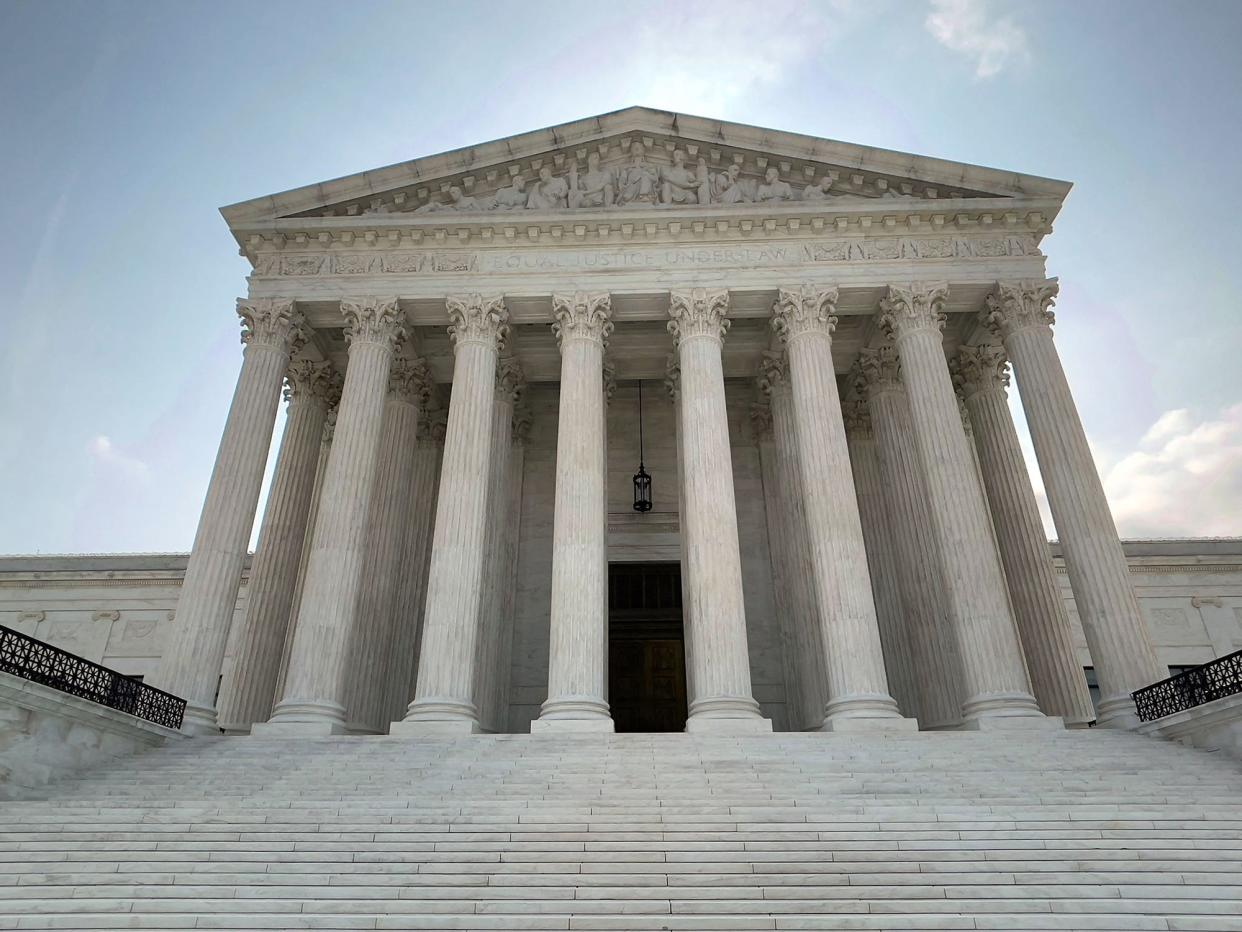Opinion/Calenda: Attorney General Neronha’s misguidance on concealed carry

- Oops!Something went wrong.Please try again later.
Chas Calenda is the endorsed Republican candidate for Rhode Island attorney general, chas4ag.com. He practices law at Inman & Tourgee, in Coventry.
Twenty-six days later and following multiple requests for guidance, R.I. Attorney General Peter Neronha finally spoke publicly on the impact the U.S. Supreme Court’s decision in NYSPRA v. Bruen will have on Rhode Island's concealed carry laws. In short, his answer was “status quo.”
Despite the highest court in this country expressly repudiating concealed carry permitting schemes which require a “showing of need” or “a good reason,” Mr. Neronha declared that the state law which allows the attorney general to issue a concealed carry permit “upon a proper showing of need” remains perfectly lawful because Rhode Island has another option to get a permit – through the local licensing authorities in the town or cities in the state.
In Mr. Neronha’s view, because Rhode Island has one constitutional method of obtaining a concealed carry permit, he may continue using the now-unconstitutional “proper need” standard when evaluating applicants for his office’s permit. If that sounds bizarre, it’s because it is.
The attorney general also issued guidance to the local licensing authorities about how they may properly evaluate their applications in light of Bruen. Briefly, he stated so long as there is no requirement of “need” or a “good reason,” they may continue to deny applications based upon a lack of “suitability,” even though that term remains undefined under Rhode Island law. Mr. Neronha did not attempt to define it, but he embraced a licensing scheme which would allow local authorities to evaluate the “good moral character” of the applicant when determining their suitability to be licensed, something that is unquestionably subjective.
While he points to the Supreme Court’s opinion which seemingly gives approval to a similar licensing scheme in Connecticut, he conveniently left out an important part of the Court’s holding: any licensing scheme which gives “open-ended discretion” to a licensing authority does not pass Constitutional muster. A government official evaluating these applications must use “objective” criteria to either approve or deny an application for a concealed carry permit. Good moral character is inherently in the eyes of the beholder and unquestionably will lead to different results depending on who is evaluating the applicant.
This dubious take on Bruen will undoubtedly lead to increased and unnecessary litigation asking the courts to sort things out – something that most people don’t have the time or money to do. It is also something the attorney general appears to embrace, an ominous sign that he intends to defend permitting based on the open-ended discretion of his office and local authorities. This leaves us exactly where we currently are in Rhode Island – uneven and inconsistent evaluations of applications depending on the licensing authority.
No doubt this is due to Mr. Neronha’s personal and political distaste for the rights enshrined in the Second Amendment. After all, he was the very public face of the three controversial gun-control bills passed into law this year at his urging, including the high-capacity magazine ban. Despite knowing the Supreme Court was literally on the verge of issuing a decision which would significantly alter gun laws throughout the nation, Mr. Neronha pushed successfully to enshrine these bills into law without regard to their constitutionality. This is a fairly reckless way to approach law enforcement by disregarding what will be a legally controlling decision simply for political reasons.
Rhode Islanders deserve better than Attorney General Neronha’s partisan politics and should demand that he respect the rule of law as decided by the U.S. Supreme Court.
This article originally appeared on The Providence Journal: Opinion/Calenda: Attorney general’s misguidance on concealed carry

